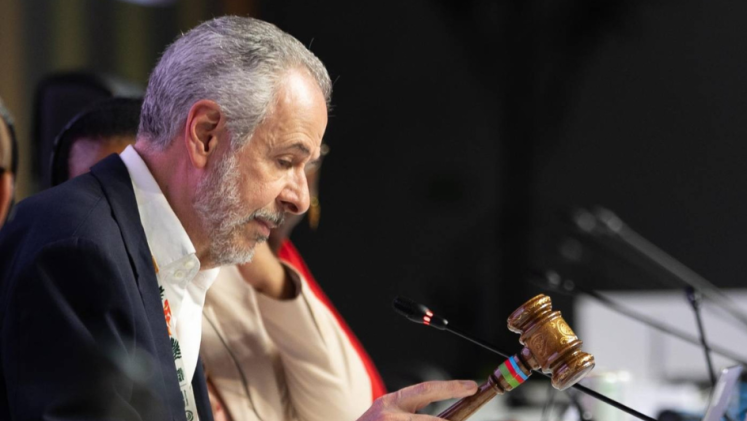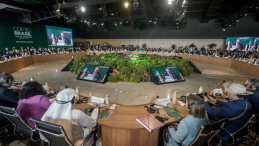The 30th UN Climate Change Conference of the Parties (COP 30) brought the world to Belém, Brazil, for a negotiating round surrounded by rising climate impacts and growing expectations. After two weeks of talks, countries adopted a bundle of decisions now referred to as the Belém Political Package. Here are five key outcomes of COP 30:
A political signal to triple adaptation finance by 2035
Adaptation finance is the funding that helps countries cope with climate impacts already unfolding, such as building flood-resilient roads, improving water storage during droughts or expanding early warning systems. At COP 30, countries indicated that adaptation finance should increase threefold by 2035. While this is not yet a binding commitment, it is a major political signal. Current funding falls far short of what vulnerable countries need, and impacts are escalating quickly. A clear expectation to scale up resources over the next decade gives international institutions and national governments a direction of travel, even as the details on contributions still need to be negotiated.
Mind the gap: New initiatives to raise ambition
Countries’ Nationally Determined Commitments (NDCs) while providing progress if implemented are falling short to reach the mitigation necessary to avoid 1.5°C. In an effort to bridge the gap between current climate targets and the 1.5°C goal, the Baku-Belém Political Package establishes two initiatives designed to support nations in strengthening and achieving their commitments. The "Belém Mission to 1.5" aims to encourage higher ambition in national climate plans (NDCs) by fostering dialogue on the necessary international cooperation and investment. This is complemented by the "Global Implementation Accelerator," a voluntary and cooperative platform intended to assist countries in moving from planning to action, facilitating the practical delivery of mitigation and adaptation measures needed to meet these goals.
A new UNFCCC mechanism to guide “just transition”
One of the summit’s most consequential outcomes was the creation of a just transition mechanism. In line with the Sustainable Development Goals (SDGs), just transition refers to the idea that climate action should not leave anyone behind, particularly communities and workers whose livelihoods depend on fossil fuels or carbon-intensive sectors. It also means giving developing countries the support they need to grow their economies in cleaner, more resilient ways. The new Belém Action Mechanism (BAM) will serve as a platform to coordinate assistance, share best practices, mobilize resources and track progress. Its establishment means that fairness in the global shift toward sustainable economies is no longer only a political slogan but now has a formal home within the UN climate system.
Countries agreed on indicators for the Global Goal on Adaptation
For years, Parties have been trying to define how to measure global progress on adaptation, which is a difficult task considering climate resilience looks different from place to place. COP 30 finally produced an agreed set of indicators for the Global Goal on Adaptation (GGA). These will help evaluate improvements in areas such as water security, food systems, infrastructure resilience, the reach of early warning systems and access to adaptation finance. Negotiations were difficult, and many governments stressed that the indicators will need further refinement, leaving significant work for coming COPs. Still, having a first version in place gives countries a common framework to assess whether adaptation efforts are on track.
Fossil fuel phase-out language did not land, but momentum may build elsewhere
Many governments and civil society groups arrived in Belém calling for a clear commitment to phase out fossil fuels. In the end, Parties were unable to agree on formal language that would anchor a phase-out in the COP 30 outcome, especially due to the opposition of major fossil fuel-producing nations. However, the issue is far from closed. Brazil, as the COP 30 Presidency, launched an initiative to keep the question moving in the lead-up to COP 31. Presidency-led processes have previously helped break political deadlocks, and this new effort aims to work with willing countries to outline practical steps for phasing down fossil fuel production and use. Although not a negotiated decision, it could influence next year’s discussions and help close the huge gap left in Belém.
Together, these five outcomes show both movement and limits. COP 30 delivered new tools, clearer expectations and new cooperative spaces, but also highlighted where global ambition still lags behind what climate science demands. The year ahead will determine whether countries can turn these outcomes into meaningful action before COP 31.





